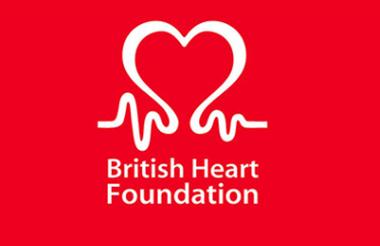Income at the British Heart Foundation (BHF) dropped by over 40% last year, after suffering multi-million-pound losses from its charity shop network.
The charity described 2020-21 as “the biggest challenge” in its history, and confirmed that it had made 100 roles redundant in response to the impact of Covid-19.
BHF’s accounts, which were published yesterday, show that total income in the year to March 2021 was £86m, down from £151m in 2019-20. Spending also fell significantly, to £74m compared with £128m last year.
Income from fundraising events dropped by £10m, while charity shops lost £40.5m after government support is taken into account.
Shops and jobs
BHF has the largest network of charity shops in the country. The annual report says that 729 stores were closed for up to eight months because of lockdown restrictions during the pandemic.
Although the charity furloughed “a significant proportion” of its retail staff, and received more than £30m from this and other forms of government support, its shop network recorded a net loss of over £40m.
The accounts also show that the charity was forced to make redundancies in response to the financial situation.
The report says: “As the scale of the financial challenge we faced became apparent, we undertook an organisational review, which led us to entering into a consultation programme with c. 300 staff members in order to consolidate and protect certain activities and reduce operating costs.
“As a result of that process, 100 roles were made redundant and over 160 budgeted roles were left vacant following a recruitment freeze.”
During the year BHF employed on average 4,229 staff, 3,494 of whom worked in the shops.
Moving funds to frontline
BHF said that it will accelerate plans to use excess reserves to fund frontline work in the years ahead.
The report states that it holds more than £250m in cash and investments, which is “significantly above the upper end of the reserves range”.
These reserves will reduce as some planned grant payments are made, but the accounts add that “with the material impact of Covid-19 on income generation in 2020-21, and the continued uncertainty of outlook, we now anticipate the excess will be applied in protecting our charitable mission in the shorter term”.
Nearly £80m in investments was moved to cash reserves last year “to increase the liquidity and stability of our reserves”, the report said.
BHF: ‘biggest challenge’ in 60 years
BHF said in a statement: “The report shows that despite the challenges of the Covid-19 pandemic, we were able to fund around £52m of new research grants in 2020-21 as well as fulfil our funding commitments to the world-leading researchers we have already made.
“However, the report also shows that the pandemic has been the biggest challenge we have faced in our 60-year history.
“Our net income fell by around half, largely as a result of our 730 shops and stores having to close for months on end and due to the cancellation of our much-loved face-to-face fundraising activities.
“Despite these challenges, the report outlines the swift and difficult decisions we made to manage our costs whilst protecting as much of our life saving research as we could and ensuring we were there for heart and circulatory disease patients who needed us more than ever.”
Related news











